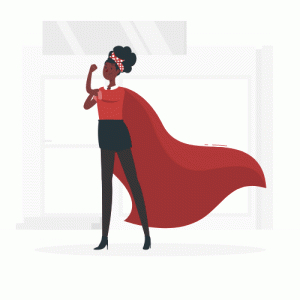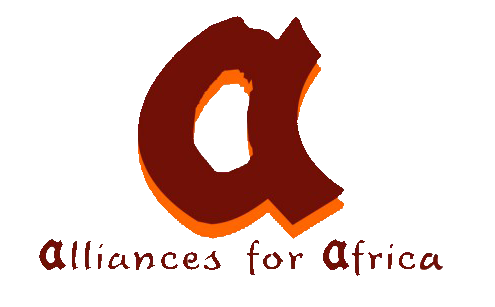Statement by Alliances for Africa at the
/0 Comments/in News and Events/by Rejoice75th Ordinary Session of the African Commission on Human and Peoples’ Rights
Observer Status Number 235

Statement by Alliances for Africa at the
75th Ordinary Session of the African Commission on Human and Peoples’ Rights
Observer Status Number 235
Honourable Chairperson of the ACHPR,
Alliances for Africa is an international African-led feminist non-governmental human rights, peace, and sustainable development organisation. AfA works with partners in, around and beyond the continent of Africa. Alliances for Africa is a member of the Solidarity for African Women’s Rights (SOAWR). The SOAWR Coalition was formed in 2004 in dedication to the promotion of the Maputo Protocol as a key instrument to realise the human rights of women and girls in Africa. SOAWR’s principal objective is to advocate for the adoption, ratification, domestication, and implementation of the Protocol to the African Charter on Human and Peoples’ Rights on the Rights of Women in Africa (the Maputo Protocol) and seeks to align its mission to the AU’s All for Maputo Protocol Programme. SOAWR currently has a membership of over 80 organisations in over 30 African countries.
Honourable Chairperson, the SOAWR Coalition commends the Government of South Sudan on its recent accession to the Maputo Protocol, among other international human rights treaties. The ratification of the Maputo Protocol is a critical step towards the enhancement of access to justice and human rights for the women and girls of South Sudan, especially in the areas of access to justice and the elimination of all forms of violence, discrimination, and harmful practices against women. We note that incidences of violence and discrimination against women are on the rise in South Sudan, laid bare by the recent alleged blinding of an 18-year-old woman by her father for refusing an arranged marriage.[1] We urge the Government of South Sudan to complete the ratification process of the Maputo Protocol by depositing the instruments of ratification with the Chairperson of the African Union Commission. We urge Botswana, Burundi, Central African Republic, Chad, Egypt, Eritrea, Madagascar, Morocco, Niger, Somalia, and Sudan – to urgently ratify the Maputo Protocol to ensure the women and girls in these countries enjoy their rights as enshrined in the Protocol. Additionally, we call upon the Commission, in cases where countries have ratified the Maputo Protocol, to increase engagement on the implementation of the treaty, including relevant legal and policy reforms on key priority areas as identified by women’s rights activists and organisations; and to submit regular and timely reports on the progress made in line with the Commission’s reporting guidelines.
Honourable Chairperson, the SOAWR Coalition is concerned about Sudan’s escalating human rights situation. As of April 18, 2023, the UN reported that 185 people were killed and 1800 injured during the first few days of the military conflict between the Rapid Support Forces paramilitary group and the armed forces of the Sudanese government.[2] Worryingly, media reports portray a dire picture of the humanitarian situation in the country with reports of attacks against civilians and aid workers, the shutdown of the health care system in Khartoum and residents sheltering at home out of fear of attacks. Women and girls bear the brunt of armed conflict wherever it occurs. Before the latest conflict, civil society organisations had already raised the alarm about escalating attacks against women and girls, including killings, rape, kidnappings, forced displacement and police brutality against women protesters.[3] The SOAWR Coalition remains worried about the volatile political situation in Sudan and its risk of further escalating and endangering civilian lives. We urge the African Commission to immediately condemn the armed conflict in Sudan and call for an immediate end to all hostilities. We demand that the Special Rapporteur on the Rights of Women in Africa urge the relevant authorities to put in place measures to ensure that women and girls in Sudan are protected from rape and sexual assault in line with Sudan’s human rights obligations and take all steps necessary to address and mitigate the harm to victims of sexual and gender-based violence that have already occurred through a survivor-centred approach. Further, we urge that the Special Rapporteur on Human Rights Defenders and Focal Point for Reprisals in Africa urge the Sudanese authorities to immediately cease acts of violence, intimidation and reprisals targeting women human rights defenders and women’s rights civil society in the country.
Honourable Chairperson, climate change and global warming pose a significant threat to the enjoyment of human rights, particularly those of women and girls in Africa. African women and girls are disproportionately affected by the effects of climate change and global warming, as they are often more dependent on natural resources for their livelihoods, are less likely to have access to resources, such as education and healthcare, which can help them cope with the effects of climate change, and suffer disproportionately from the impact of resource conflicts, droughts, and famines. For African women and girls, the climate crisis is already here, and there is an urgent need to address, mitigate and reverse the effects of this crisis. We call upon the African Commission to (1) reinvigorate efforts towards promoting a human-rights-based approach to addressing the climate crisis and its impact in Africa through its mandate, with reference to Resolutions 153, 271 and 342, which call for the strengthening of regional and international climate action cooperation, the adoption and implementation of special measures for the protection of vulnerable groups such as children, women, older persons and persons with disabilities, indigenous communities and other minorities, and (2) undertake the development and publication of a study on the impact of climate change on human rights in Africa.
The Federal Republic of Nigeria’s revised National Gender Policy (NGP) 2021-2026 was adopted at the Federal Executive Council (FEC) in 2022 as part of the state’s obligation to provide institutional and policy frameworks congruent with its international obligations and ratified legal and policy instruments.[4] The Revised NGP sets a minimum standard for gender equality and adopts a strategy focused on three critical areas: Gender Equality, Empowerment of Women, and Social Inclusion. Since its adoption, Women’s Rights Advancement and Protection Alternative (WRAPA), one of the member organisations of the SOAWR Coalition, has partnered with the Federal Ministry of Women Affairs (FMWA) to create awareness and knowledge updates on the policy at the federal level, engaging with other relevant federal ministries for effective coordination and implementation of the National Gender Policy, especially its provisions on gender-responsive budgeting. A majority of Nigerian women participate in the informal sector, such as agriculture and small businesses. This population is often overlooked due to poor access to financial services and banking institutions, which leaves women disproportionately served and excluded from the financial system.
According to a publication by one of WRAPA’s partners, titled Assessing National Funding for Women’s Economic Empowerment in Nigeria, the government of Nigeria needs to institutionalise gender-responsive budgeting practices to empower accountability actors to evaluate the impact of budgetary and increased budgetary disbursements on women’s economic empowerment, women’s financial inclusion, and women’s economic collectives.[5] We urge the government of Nigeria to improve transparency and accountability around the allocation and utilisation of women’s economic empowerment, women’s financial inclusion, and women’s economic collectives by building more institutional capacity for gender-responsive budgeting. We also urge the government of Nigeria to implement constitutional principles, statutes and policies aimed at promoting gender equity and establish systems that link those policies to budget tracking and analysis. Considering the importance of gender-sensitive planning and budgeting processes in the promotion of the rights of women and girls in Africa, we urge the ACHPR to remain seized of this issue and enhance engagement with AU Member States on this thematic area, keeping in mind obligations by States to provide adequate budgetary allocations for the full and effective implementation of Maputo Protocol provisions.
Thank you
Done on April 20, 2023.
The SOAWR Coalition is comprised of the following:
- Action for Development (ACFODE)
- African Centre for Democracy and Human Rights Studies (ACDHRS)
- African Women’s Development Fund
- African Women’s Development and Communication Network (FEMNET)
- Akina Mama wa Afrika
- Alliances for Africa (AfA)
- Association des Juristes Maliennes (AJM)
- Association des Juristes Sénégalaises
- Association of Egyptian Female Lawyers (AEFL)
- Association Jossour Forum des Femmes Marocaines (Jossour)
- Atwar Organization for Research and Social Development (Atwar)
- BAOBAB for Women’s Human Rights
- Cellule de Coordination sur les Pratiques Traditionelle Affectant la Sante des Femmes et des Enfants (CPTAFE)
- Center for Health Human Rights and Development (CEHURD)
- Center for Human Rights – University of Pretoria
- Center for Reproductive Rights
- Centre for Rights Education and Awareness (CREAW)
- Centre for Justice Studies and Innovation (CJSI)
- Centre for the Study of Violence and Reconciliation (CSVR)
- Coalition on Violence Against Women (COVAW)
- Collectif des Associations et ONGs Féminines du Burundi (CAFOB)
- Eastern African Sub-Regional Support Initiative (EASSI)
- Equality Now
- Fahamu Networks for Social Justice
- Federation of Women Lawyers – Kenya (FIDA-Kenya)
- Fondation Pour l’Egalité/ CIDDEF
- Forum Mulher
- Forum for Development and Human Rights Dialogue (FDHRD)
- Girl Child Network (GCN)
- Great Lakes Initiative for Human Rights and Development (GLIHD)
- Human Rights Law Service (HURILAWS)
- IGED Africa
- Inter-African Committee (IAC) on Harmful Traditional Practices
- Inter-African Network for Women, Media, Gender Equity and Development (FAMEDEV)
- Ipas Africa Alliance for Women’s Reproductive Health and Rights
- Islamic Development and Relief Agency (IDRA)
- Journal Féministe Algérien
- KADIRAT
- Kenyan Section of the International Commission of Jurists (ICJ-Kenya)
- Legal and Human Rights Centre (LHRC)
- Make Every Woman Count
- Malawi Human Rights Resource Centre (MHRRC)
- MPOWER
- National Association for the Defense of Rights and Freedoms (NADRF)
- Network Against Female Genital Mutilation (NAFGEM)
- NGO Gender Coordination Network (NGOGCN)
- Oxfam GB
- People Opposing Women Abuse (POWA)
- Question de Femmes
- Reproductive Health and Rights Alliance (RHRA)
- Réseau des Femmes Leaders pour le Développement (RFLD)
- Sister Nambia
- Source of Peace Organization (SPO)
- STEWARD Women
- Strategic Initiative for Women in the Horn of Africa (SIHA)
- Support the Empowerment of Women and their Rights for Development (STEWARDWOMEN)
- Tomorrow’s Child Initiative
- Tshwaranang Legal Advocacy Centre (TLAC)
- Uganda Women Network (UWONET)
- Union Nationale Des Femmes Djiboutiennes
- Voix de Femmes
- Well Being Africa
- Women and Law in Southern Africa – Zambia (WLSA Zambia)
- Women in Law and Development in Africa (WiLDAF)
- Women NGO Secretariat of Liberia (WONGOSOL)
- Women of Liberia Peace Network
- Women Peace Initiatives Association
- Women’s Advocacy and Communication Network (WANET)
- Women’s Counselling and Information Centre (WCIC)
- Women’s Rights Advancement & Protection Alternative (WRAPA)
- Young Liberian Women Organization for Improvement (WOFIM)
- Y-PEER PETRI
[1] Ninrew, C. (2023, April 17). Father who allegedly blinded daughter to be tried in Juba – Eye Radio. Eye Radio. https://www.eyeradio.org/father-who-allegedly-blinded-daughter-to-be-tried-in-juba/
[2] Booty, Natasha & Osman, Mohamed (2023, April 17). Sudan fighting: RSF and army clash in Khartoum for third day. BBC News. https://www.bbc.com/news/world-africa-65293538
[3] One month after signing political framework in Sudan: Women killed, raped, and civil society attacked – Protection, justice and accountability must be prioritised! (2023, January 17). ISHR. https://ishr.ch/latest-updates/one-month-after-signing-political-framework-in-sudan-women-killed-raped-and-csos-attacked-protection-justice-and-accountability-must-be-prioritised/
[4] National Gender Policy (2021 to 2026), Federal Ministry of Women’s Affair (2022). Available at: http://wrapanigeria.org/wp-content/uploads/2022/08/NATIONAL-GENDER-POLICY.pdf
[5] Assessing National Funding for Women’s Economic Empowerment in Nigeria (2022), Publish What You Fund, budgit, International Budget Partnership. Available at:https://yourbudgit.com/wp-content/uploads/2022/11/Assessing-National-Funding-for-Women-Economic-Empowerment-in-Nigeria.pdf



Leave a Reply
Want to join the discussion?Feel free to contribute!